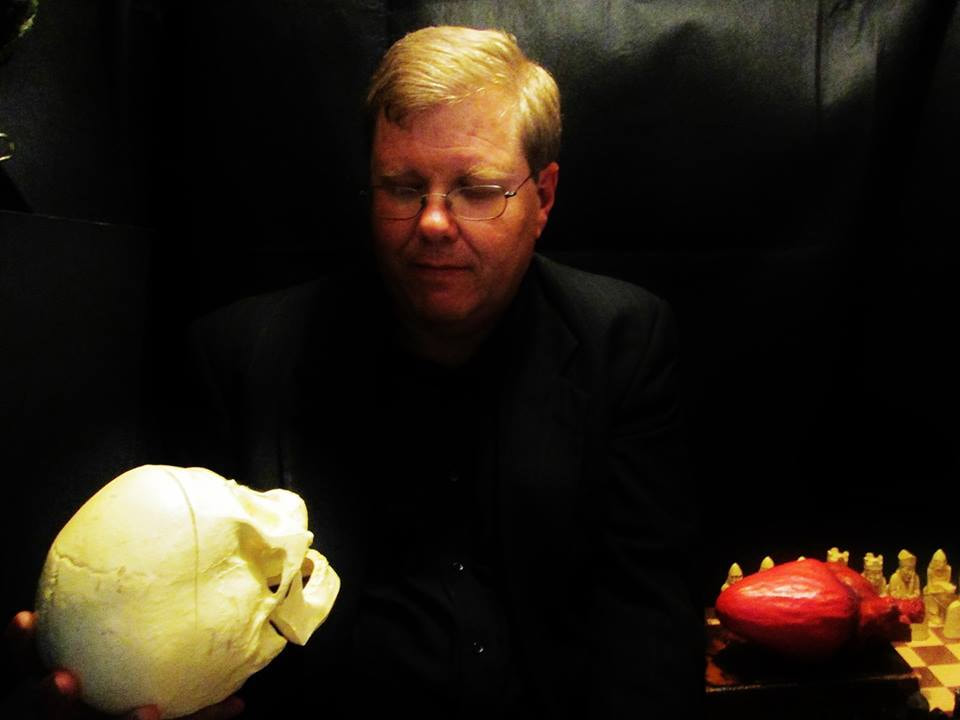It is a lazy summer day in the Appalachian foothills of Tennessee; much like the day before, and the day before that. Everything seems normal - at least on the surface; like an idyllic, pastoral painting; the sky dyed with pastels of blue and white, the ground carpeted with dark green fescue and bluegrass, a clapboard farmhouse resting on top of a hill, sugar maples, oaks and Eastern red cedars providing welcome shade from the heat of a Tennessee summer sun. You can almost see moving images of little children running barefoot through the grass; an era before tweeting and texting and the triumph of technology over all.
Alas, appearances lie.
Behind the clapboard farmhouse sits a red barn, all bright and new looking; fresh enough to lull a casual observer into believing it the benign keeper of hey for cattle and shelter for goats. A closer look reveals the color to be not barn red, but blood red.
Locals tend to close their eyes when passing by that barn. Something is just not right about it. Some say it is unnatural. Some say it's obscene and evil. But they don't say such things out loud, for the owner of the barn is Sheldon Sprigg, a well-respected man of the cloth, the preacher at Hare’s Corner Church of God Incarnate. Sheldon is the most upright man in these parts. He keeps the law religiously, and makes sure his wife and teenaged daughter do too. After all, to obey is better than sacrifice.
Still, there's just something that not right about that barn.
Behind the clapboard farmhouse sits a red barn, all bright and new looking; fresh enough to lull a casual observer into believing it the benign keeper of hey for cattle and shelter for goats. A closer look reveals the color to be not barn red, but blood red.
Locals tend to close their eyes when passing by that barn. Something is just not right about it. Some say it is unnatural. Some say it's obscene and evil. But they don't say such things out loud, for the owner of the barn is Sheldon Sprigg, a well-respected man of the cloth, the preacher at Hare’s Corner Church of God Incarnate. Sheldon is the most upright man in these parts. He keeps the law religiously, and makes sure his wife and teenaged daughter do too. After all, to obey is better than sacrifice.
Still, there's just something that not right about that barn.
Goodreads/Amazon
My Writing and Asperger’s Syndrome
Fifteen years ago, I was diagnosed with what was then called “Asperger’s Syndrome,” or what is now labeled “Autism Spectrum Disorder, Level 1.” This may be the mildest form of autism, but it results in a great deal of pain due to the social awkwardness and clumsiness that comes with it. People with this disorder have difficulties with social situations. It is hard for us to look at a person’s eyes. If I look at someone’s eyes, my eyes tend to lock onto that stance, and the person at whom I am staring tends to freak out. I prefer, like most Asperger’s people, to be serious and not care for small talk (though I can tolerate it better now than when I was a teen). People with Asperger’s tend to focus on special interests to the exclusion of almost anything else. They talk about their special interest all the time and try to steer conversations in the direction of their interest. Unfortunately, this bores other people who have to listen to incessant talk about one subject. We also take things people say literally. Although I now understand metaphors and other figures of speech, when I was a child it was more difficult for me to do so. When I heard the word “cross” in church, I had no idea what that meant and thought it was a bridge since a bridge “crossed” a river. It was also difficult for me to “get” a joke. Even today, it often takes me a few seconds longer than anyone else to get the punchline. Conversation can be painful, and there are often seconds of lengthy silence, after which my conversational partner excuses him or herself and talks to someone else. Going up to strangers and meeting them at a crowded conference ballroom is de facto impossible for me; the noise is deafening, and rubbing against people constantly is uncomfortable. Getting the courage in such an environment to initiate a conversation is beyond my abilities.
In my first two novels, the main character, Jeffrey Conley, has Autism Spectrum Disorder, Level 1, but he does not recognize it since Asperger’s Syndrome was not well known in the years the novels are set. “Jeffrey” (the name of my twin brother, Jeffrey Potts, who died two hours after birth of severe pulmonary hemorrhage) is a mirror of me. Because his twin brother died and he learned about that early on as a child, he becomes obsessed with death. Later, he becomes obsessed with the heart, since when the heart stops, a person dies. He wonders how a rabbit heart that is so strong can be so quickly stopped by a few shotgun pellets that miss the heart. If the heart is not hit, why did it stop? He badgers his granddaddy about that to the point that the old man sometimes loses patience. In the second novel, Jeffrey has grown to a young teen, and develops a fetish for listening to a girl’s heartbeat. With that being his special interest, he tries to pursue it with the girls he meets, to their horror and his own heartbreak. When he finally meets a girl who understands and accepts him, she dies of congenital heart disease, combining the heart and death aspects and almost destroying Jeffrey. Now I was too shy to even approach a girl with my interest when I was a teen, but Jeffrey is the character I use to explore what would happen if an autistic boy explores his sometimes morbid, sometimes romantic, interests. In my third novel there is a character, a teen boy named Paul, who is also autistic (with Asperger’s Syndrome). He is a science nerd, the smart kid who helps the heroine fight a demon who has convinced her own father to try to kill her.
The advantage for me of writing about autistic characters in fiction is that I have lived the life of an autistic person from the inside—I know what it feels for me to exist as a person with Asperger’s Syndrome. The focus that arises from Asperger’s also helps give me the drive and discipline to keep writing, so in that sense it is a good condition to have. My hope is that I have conveyed something of the feeling of having Asperger’s Syndrome, and that perhaps my books will show people a character who has the condition so that they can better understand it.

Michael Potts grew up near Smyrna, Tennessee and is currently Professor of
Philosophy at Methodist University in Fayetteville, North Carolina.
His undergraduate degree (in Biblical languages) is from David
Lipscomb University. He also holds the Master of Theology from
Harding University Graduate School of Religion, the Master of Arts
(in Religion) from Vanderbilt University, and the Ph.D. in philosophy
from The University of Georgia. Michael has twenty articles in
scholarly journals, nine book chapters, six encyclopedia articles,
six book reviews, and he co-edited the book, "Beyond Brain
Death: The Case Against Brain Based Criteria for Human Death,"
which was published in 2000 by Kluwer Academic Publishers. He also
has over fifty scholarly presentations, including one presented at
the Pontifical Academy of Sciences at The Vatican in 2005. Michael is
a 2007 graduate of The Writers Loft at Middle Tennessee State
University and a 2007 graduate of the Odyssey Writing Workshop at St.
Anselm College in Manchester, New Hampshire. His poetry has been
published in Journal of the American Medical Association, Iodine
Poetry Journal, Poems & Plays, and other literary journals. His
poetry chapbook, "From Field to Thicket," won the 2006 Mary
Belle Campbell Poetry Book Award of the North Carolina Writers
Network. His creative nonfiction essay, "Haunted," won the
Rose Post Creative Nonfiction Award, also sponsored by the North
Carolina Writers Network. Besides reading and writing, he enjoys
vegetable gardening, canning, and ghost investigations. He and his
wife, Karen, live with their three cats, Frodo, Rosie, and Pippin, in
Linden, North Carolina.
Follow the tour HERE
for exclusive excerpts, guest posts and a giveaway!
for exclusive excerpts, guest posts and a giveaway!


